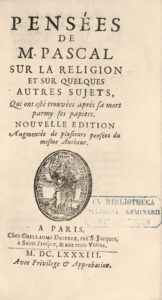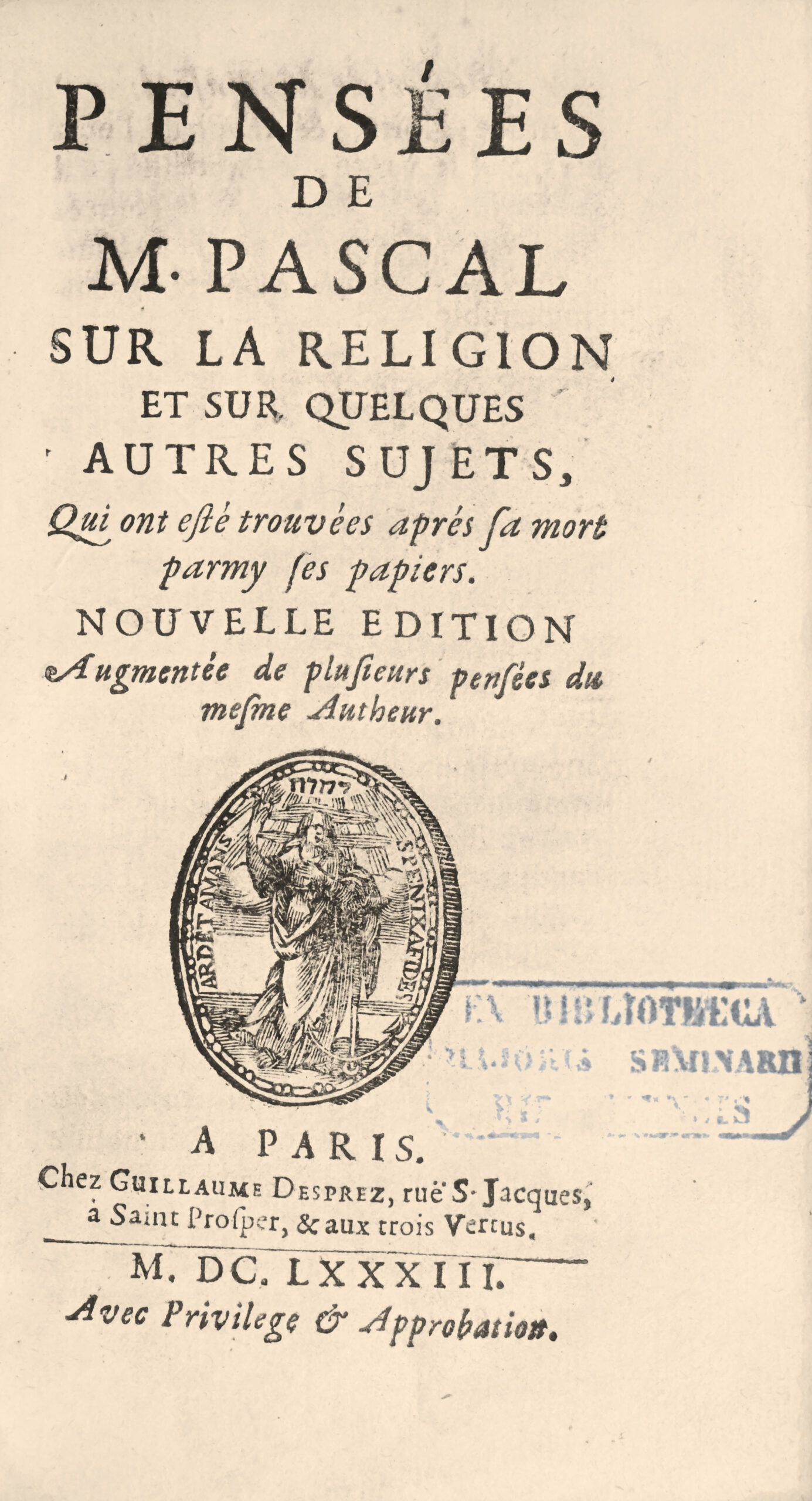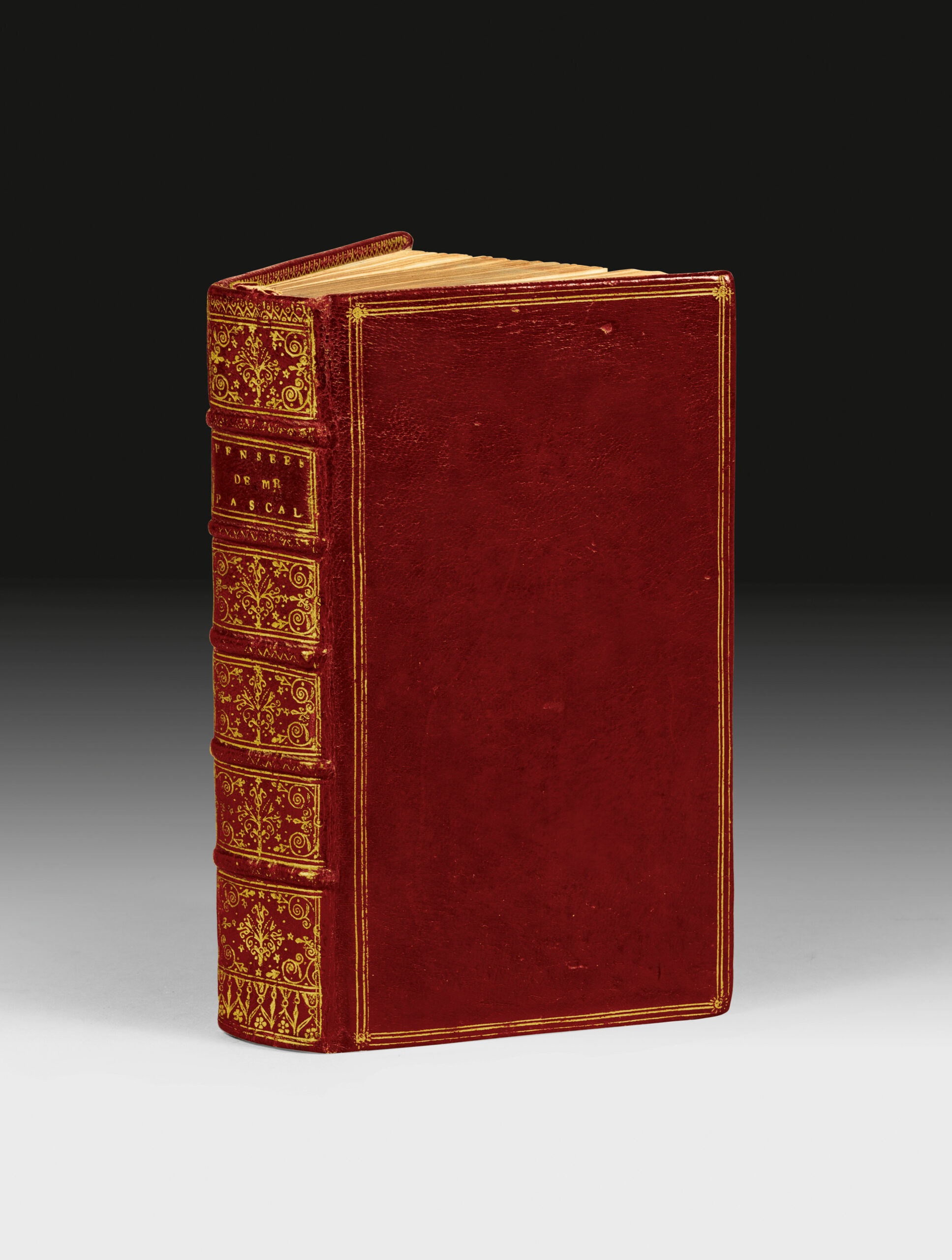Pensées de M. Pascal sur la religion et sur quelques autres sujets, qui ont esté trouvées après sa mort parmy ses papiers. Nouvelle édition Augmentée de plusieurs pensées du mesme Autheur. (Bookseller’s mark : Ardet amans spe nixa fides.)
Paris, Guillaume Desprez, rue S. Jacques à S. Prosper et aux trois Vertus, 1683.
12mo. Title: (1) l., Preface: (20) ll., Approbations de Nosseigneurs les Prélats, Table, Notice and Extract of the Privilege : (7) ll., Text of the “Thoughts” : pp. 1-356, Table of contents : (10) ll.
– [Bound with]: Discours sur les Pensées de M. Pascal, Où l’on essaye de faire voir quel étoit son dessein. Avec un autre discours sur les preuves des livres de Moyse, et un traité où l’on montre qu’il y a des démonstrations d’une autre espèce, et aussi certaines que celles de la géométrie, et qu’on en peut donner de telles pour la religion chrestienne.
[No names of city, nor of publisher].
12mo. Title: (1) l., Notice: (1) l., Text: pp. 1-89, Approval: p. 90, Discours sur les preuves des livres de Moyse [without name of city …]: (1) l. of title and text pp. 91-143, Approval 2 pp., Qu’il y a des démonstrations, etc… title (1) l., Notice: (1) l., text: pp. 1-12.
Full red morocco, triple gilt fillet around the covers, ribbed spine richly decorated, gilt inner border, gilt edges. Contemporary binding in morocco.
158 x 89 mm.
First issue of the precious 1683 edition of Pascal’s “Thoughts” with the pagination error “241” instêd of “141” in the second part of the text. It is based on the partly original edition given by the same publisher, Guillaume Desprez, in 1678 (Ref. Tchemerzine, V, 74).
In comparison with the first edition of 1670 it is enriched with new thoughts and with the discourses on the thoughts of Mr. Pascal by Mr. Fillêu de la Chaise (2 lêves, 143 pages, 3 lêves, 12 pages).
“Pascal is one of the most profound and perceptive psychologists who ever existed… If the nonbelievers can find their food in it, without touching the bottom of the problem, if these “Thoughts” have a universal character, it is because Pascal is a genius and a classical genius.
Descartes thought he had found certainty, Pascal seeks truth. With him, rêson is, if one may say so, self-critical.
Indeed, in front of the new universe which opens in front of the spirit of the man in the seventeenth century – infinite universe spatially and irreducible to the man – the rêson admits itself defêted and worries.
“The goal of Pascalian apologetics is thus to return to the crêture “its size” to restore a “situation” to him, to open to its glance a sight of itself likely to withdraw it from the fêr.” A. Béguin.
A superb copy preserved in its contemporary red morocco binding with a very finely ornamented spine.
Seventeenth century editions of Pascal’s “thoughts” bound in contemporary morocco are rare and sought-after.
See less information



